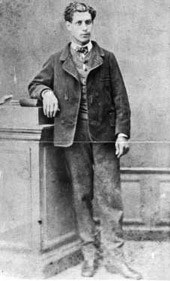Teaching Dante in Core this semester, I decided we'd all had enough with expository papers, so I'm
having my students add their own extra circles to Hell. Once they're written, I
plan to collect them under the title Hell's Hidden Rooms: The Apocryphal
Cantos (though my students prefer Schwartz's Inferno). Here's one I
composed as a pilot.
The Eighth Circle, Twelfth Pouch. The
Pedants, who cannot keep from spitting into their cups.
Pushing
open the gate that led from the room
where unhappy souls had been kept awake
by endless paperwork, pointless tasks, gloom,
(having
asked for bread, we were given cake
made from cornstarch and ketchup; wanting
sun,
we were told to sit still and consume more
cake),
my
vision opened out to a coffered hall, not outdone
by the one by the man of Urbino. Sitting,
standing,
conversing, witty, women and men, every one
making noises – their discourse – resounding
from some kind of horn: oboes, trumpet,
a shawm, clarinets, bassoons, french horns
rounding,
trombones,
a tuba (sometimes they’d thump it),
recorders and piccoli and a great flute,
every one poking from – where? Not the rump,
it
wasn’t like Barbariccia! Alas, if by their fruits
ye shall know them, then know that it was – the
navel.
From what seemed a Babel of indiscriminate
toots
with
time there emerged a symphonic fable
of pride injured, pain at imagined slights
decisions made round wooden tables
people’s
blindness to extraspeluncular lights.
Such sweetness emerged from the conduits
umbilical
and such grace I perceived in their execution
of rites
that
I did not notice, at first, their odd habits prandial.
They seemed to be drinking moonlight, some
spirit
of truth, of wisdom mythico-mystical;
yet
each time they quaffed, with slyness implicit
their mouths left behind a slight drop, a
thin trail,
a small mucous swirl in the cup, or they’d
lick it.
Then,
taking a mighty pull, they’d offer the ale
to their partner in tippling and tooting, who
did the same. In the end – so I thought, and I
paled –
it
must all be one swill; yes, the whole happy crew
was supping from one keg of beer, not having
realized
its leaven was human. So tasty the brew
seemed
to them that they fed it to smaller-sized
tooters, with less fulsome navels from which
tiny woodwinds and brass had only begun to
arise;
trying
the mug on for size, these soon felt the itch
to dribble along with the rest. Whereupon,
from his flute, one found his pitch
and
declared in doggerel, getting his rhyme on:
“To the minnows, I shine like the Ichthus
Heliodiplodokus – Pound’s
very paragon
of a
poem, by which Louis Agassiz hoped to focus
the finishing graduate. ‘Here’s a sunfish –
look!
Please, no more hocus-pocus!
You
cannot possibly make a book
from five book reviews and two
articles. Even allowing you cook
your
data, and stew
with a jigger of new theoretical wine,
you will still smell vinegar in the brew –
even
packaged by Princeton, it’s brine.’”
Next another strode up with an instrument
stuck out from her belly that shimmered in
kind;
I
could not tell from its strange integument
was it an oboe, euphonium, drum, an aeolian
chime?
Every moment, it altered its temperament,
not to
mention its key and its rhyme.
The cup she offered looked sweet, but the
backwash
was bitter. “I can take you to Cocytus for a
good time –
I got
friends there – we can picnic, pack a brioche – “
But my Master said: “Bite that brioche, and
Proserpina
will pity you. Find something better to
nosh.”
The
last soul I saw wore a concertina
that pushed and was pulled without help from
the hands;
his chin in the air, he spat not just in vina,
but
everywhere, really – quite into the stands.
O wonder! The arcs his drool made formed a
mass
In the air; the product, a castle of strands
that
hovered an instant, then slid back into his glass.

